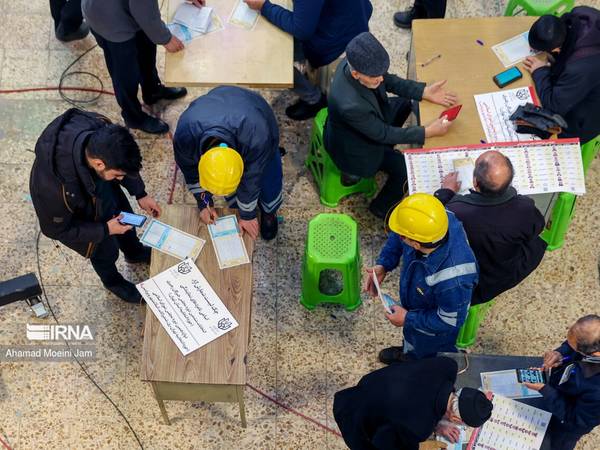Several top politicians in Iran warned ahead of the lackluster elections on March 1 that popular rejection of the highly manipulated electoral system could prove costly for the regime.
Alongside these warnings, they have offered roadmaps and guidelines aimed at navigating the potential challenges arising from the political impasse.
Despite the government’s claim of a 40-percent turnout, scattered voting results announced since Friday indicate a lower turnout and an unprecedented number of blank ballots.
One day before the elections, former Majles Speaker Ali Larijani emphasized the urgent need for a "national unity government" to address the looming challenges both regionally and internationally. He stressed the importance of forming coalitions at various political levels and fostering cohesion and empathy among the people as crucial steps towards steering the country out of its current predicament.
Larijani's nuanced message struck at the core of Iran's foreign policy, which has resulted in international isolation and the imposition of sanctions, culminating in a five-year-long economic crisis.
Larijani also advocated for the strategic use of "protest votes," suggesting that casting blank ballots or supporting candidates outside the leading ultraconservative camp could serve as a wake-up call to the government. However, he cautioned that such actions might come at a significant cost to both the government and the nation, potentially paving the way for a dictatorship if left unaddressed.
Furthermore, Larijani warned against the disillusionment of the people, asserting that it could signal the onset of authoritarian rule. He urged the government to ensure that despite the biased vetting process that sidelined reformist and moderate candidates, there are still avenues for representing the rights and aspirations of dissatisfied voters.
At the same time, Larijani, who led the parliament for 12 years, underscored the importance of voter participation in effecting change within the country's political landscape. He urged the populace to engage in the electoral process as a means of holding the government accountable and advocating for reforms, cautioning that abstaining from voting could empower a minority to seize power.
In addition to Larijani’s warnings and recommendation, former government spokesman Ali Rabiei proposed a post-election roadmap for reform-minded Iranians. He emphasized the need for coalition-building and collective action to rectify the shortcomings of the electoral system and safeguard Iran's freedoms and improve governance.
Rabiei stressed that the consolidation of conservative political power alone would not address Iran's underlying issues or alleviate the current political impasse. Instead, he advocated for the unity of reformist and moderate forces to navigate the challenges posed by the prevailing political climate.
Nevertheless, Iranian voters also harbor disillusionment toward Reformists who have advocated for gradual change for over a quarter of a century, yet failed to achieve tangible results, ultimately witnessing the regime's complete takeover by hardliners.
Meanwhile, a video surfaced on social media featuring Iranian sociologist Hatam Ghaderi quoting Ruhollah Khomeini, the Islamic Republic's founding leader, regarding the imposition of the 1905 constitution that put an end to absolute rule and established a constitutional monarchy. Khomeini argued that people preferred an Islamic government, not a constitution established seven decades earlier. Dissidents and many Iranian now make the same argument, saying that they are not bound what their grandfathers and fathers preferred 45 years ago, and want a regime change.
Pointing out that protests in Iran cost lives, Ghaderi said: "Now the people do not want the Constitution of the Islamic Republic. They do not want the guardianship of the Supreme Leader. How can they say we do not want this Constitution without fearing repression or getting killed or shot in the eye, and without thousands of people being jailed?"
